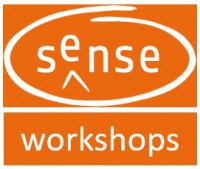Brush up your English Grammar
Morning workshop: Using connectors powerfully
Session 1: Problems with the use of connectors 1: conjunctions, relative pronouns, sentence adverbials, prepositions
The writing of so many authors nowadays abounds with problems involving the use of connectors. This alone can create headaches for the translator or editor. Besides the age-old chestnut of “that” versus “which”, we'll consider the incorrect choice and use of sentence adverbials (however, in addition, consequently, meanwhile) and those dangerous words “while”, “despite”, “although” and “since” – dangerous because they usually introduce inordinately long and complex sentences that are almost impossible to fathom.
By considering examples of the misuse of verbal connectors during this hands-on session, participants will acquire some tips on how best to improve authors’ writing in this area.
Session 2: Problems with the use of connectors 2: using punctuation correctly and meaningfully
Much of the writing we encounter nowadays is bland, and often the reason is that authors are so uncreative in their use of punctuation. They tend to limit their punctuation repertoire to full stops and commas (and then use the comma incorrectly, too!). In this session, participants will be introduced to creative and powerful uses of the semicolon, the colon, parentheses and the dash. They can all be used quite legitimately in any genre to convey an author’s meaning clearly and to connect their ideas more powerfully than the humble comma (although its effective use will also feature)!
By considering examples of the misuse of punctuation to connect ideas, sentences and paragraphs during this hands-on session, participants will acquire some tips on how best to improve authors’ writing in this particular area.
The morning workshop is good for 3 PE points.
Afternoon workshop: Using verbs powerfully
Session 1: The modal verbs: is your author ‘in the mood’?
In the writing of many ESL and EFL authors, the English modal verbs often present editors and revisers with challenges at a number of levels. And amid much unidiomatic usage, LPs have to fix the inappropriate use of modal verbs in order to render texts comprehensible. In particular, can, could, may, might, shall, should, will and would present challenges. This session will take you through the current wisdom on the preferred usage of the modal verbs in English and help you to apply these verbs in the many different text types we all work with.
Participants will ‘learn by doing’ in that they will be exposed to a variety of texts in which errors of modal verb usage occur. You will then have an opportunity to correct the errors, which will in turn lead to discussions about currently acceptable or unacceptable usage in a variety of contexts and genres.
Session 2: Getting to grips with authors’ phrasal verb usage
English abounds with phrasal verbs. They contribute, often subtly and idiomatically, to its richness, carrying meanings different from their root verb forms. They are also notorious for befuddling both writers and editors or revisers, though! Why, for instance, do we write ‘The swimmer dived into the pool’ but ‘Tune in to radio station ABC’? And when a plane takes off, do we speak of ‘at takeoff’ or ‘at take-off’ when using the noun form? The answers to these and other phrasal verb conundrums will be provided during this session in which you will ‘learn by doing’ a number of exercises that help to illustrate current usage.
Among the related issues to be dealt with regarding phrasal verbs include perennial problems such as:
• which adverb or preposition fits idiomatically with a given verb or noun (eg provide with versus provide for; insight into, not in);
• assigning the correct adverbs or prepositions to verbs or nouns (eg ‘We gained great appreciation of and insight into his method of designing jewellery.’);
• US versus UK usage.
The afternoon workshop is good for 3 PE points.
Participants are welcome to send in their related grammar bugbears before the workshop (cpd@sense-online.nl), or submit them during it, as time will be allocated to dealing with them.
About the facilitator:
 John Linnegar is something of a ‘grammar geek’, having had the best of English teachers at school at a time when grammar was well taught. A former schoolteacher (English, History), John has been improving authors’ texts since 1977. He has written and published Engleish, our Engleish: Common errors in South African English and how to resolve Them (2013), Text editing (2012), and, more recently, grammar, punctuation and all that jazz ... (with Ken McGillivray, 2019). He is a co-author of Oxford English grammar: The advanced guide (2015) and contributes a regular column on grammar and punctuation to the quarterly newsletter of the Professional Editors’ Guild. He considers himself a descriptivist more than a prescriptivist in matters grammatical, being inclined to reflect what the authorities consider to be preferred current English usage.
John Linnegar is something of a ‘grammar geek’, having had the best of English teachers at school at a time when grammar was well taught. A former schoolteacher (English, History), John has been improving authors’ texts since 1977. He has written and published Engleish, our Engleish: Common errors in South African English and how to resolve Them (2013), Text editing (2012), and, more recently, grammar, punctuation and all that jazz ... (with Ken McGillivray, 2019). He is a co-author of Oxford English grammar: The advanced guide (2015) and contributes a regular column on grammar and punctuation to the quarterly newsletter of the Professional Editors’ Guild. He considers himself a descriptivist more than a prescriptivist in matters grammatical, being inclined to reflect what the authorities consider to be preferred current English usage.

